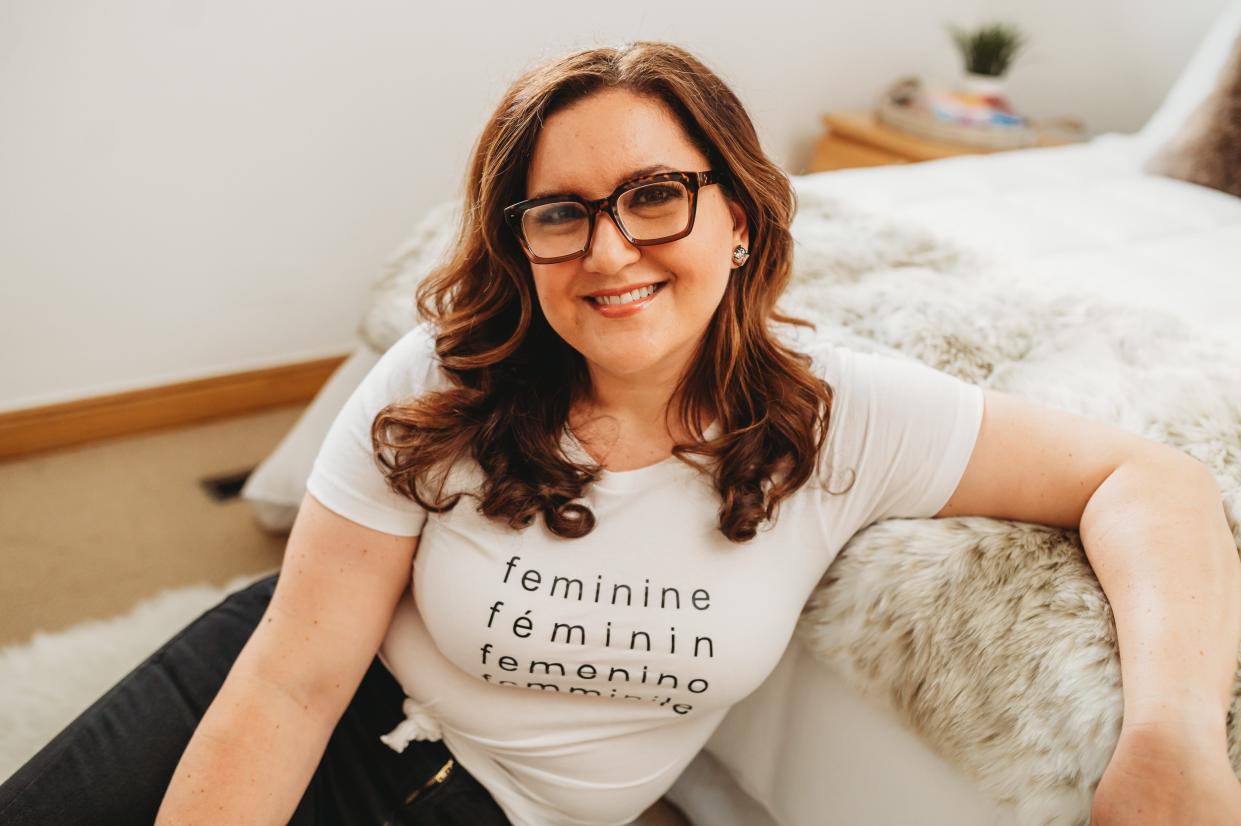I felt isolated in shame after learning I had diabetes. Doing my insulin shots in public helped me accept it.

When I was first diagnosed with diabetes, I felt ashamed.
I didn't tell anyone for a while and didn't identify as diabetic internally, either.
But eventually, I accepted my diagnosis, and doing my insulin shots in public helped.
Last week, I was in a chic restaurant with colleagues blustering through semi-fake smiles, feeling acutely distracted. I needed to run to the bathroom for an insulin shot before the appetizers arrived. Life as a type 1 diabetic requires stealth, timing, discipline, and, above all, humility.
I inadvertently learned I was diabetic over a decade ago during a routine physical appointment in my early 20s when my triglycerides had suddenly skyrocketed to dangerous levels. My primary care physician did more blood work, diagnosed me with insulin resistance — or type 2 diabetes — and swiftly sent me to a specialist.
A specialist diagnosed me with type 1 diabetes
It took over nine months of working with a specialist to be diagnosed with type 1 diabetes rather than type 2. The primary difference is that the bodies of people with type 2 diabetes produce insulin and can't effectively process it. In contrast, people with type 1 don't produce insulin, so it needs to be injected subcutaneously.
Once I was first diagnosed, my entire life changed. I was markedly ashamed of the disease. I saw the way diabetes was described in mainstream media as something that primarily affected people who were overweight. And I've always been overweight. Though it's type 2 diabetes that was medically linked with obesity, I still worried most people didn't know the nuance of diabetic diagnoses and would make assumptions about me.
For a while, I felt shame about my diagnosis
I spent the first years of my diagnosis isolated in shame. I wore an insulin pump under my clothing. The bulky device clipped into my bra and was tethered to the injection site by a long, clear tube that got caught on everything. I started hugging people at a distance, worried they'd feel it pressing on them. I went to education classes on medical equipment required by my insurance carrier. But I didn't identify as a diabetic internally to myself, or to others. I wanted to keep my condition at an emotional distance, even from myself.
I eventually got a continuous glucose monitor, but it was conspicuous, either on the back of my arm or presenting as a visible lump under my waistline. I hated getting questions at the gym when I wore a tank top: "Oh, what's that for?" Or from the woman fitting my wedding dress: "You might want to pick a different style if you wear this on the big day."
Eventually, my perspective changed
It took me another decade to slowly let people in on my diabetic secret. I realized that for every prying question, like, "Is that for allergies?" followed by, "Oh, I didn't know you were DI-A-BE-TIC! (gasp)," when I'd give the answer, there was rarely a follow-up. People were curious about the medical equipment, but the deriding comments I was afraid of often didn't materialize.
Maybe it was wisdom that came with age, but eventually, I simply stopped caring what other people thought about my condition and how I was managing it. Plus, I knew I was doing great, maintaining a healthy A1C — which measures average blood glucose levels over three months — under 6.1%. This was down from 9.1% when I was first diagnosed; for context, a non-diabetic A1C is around 5.7%.
Owning the emotional reality of my condition also helped me make better choices for my care. I switched from an insulin pump to shots, which makes me feel more in control of my dosing. I have authentic conversations when people ask me how I manage my blood sugar.
Soon, I was surprised to find that the shame that kept me from hugging people years ago, scared they'd feel my insulin pump, had evaporated. Now, not only do I not care if people know I have diabetes, but sometimes, at business dinners, I pull out my insulin pens, screw in the needle, and push the required units into my belly right through my blouse at the table.
I ward off prying questions with a confident smile and a remark that sends us back to the conversation at hand. I'm not as annoyed by inquiries as I once was, but I rarely speak at length with acquaintances or strangers. I reserve in-depth conversations for my partner, close friends, and endocrinology team.
Over 20 years, I've learned that owning my condition means leaning into pragmatism rather than emotion. After all, I'm the one living with diabetes, not anyone else.
Read the original article on Business Insider

